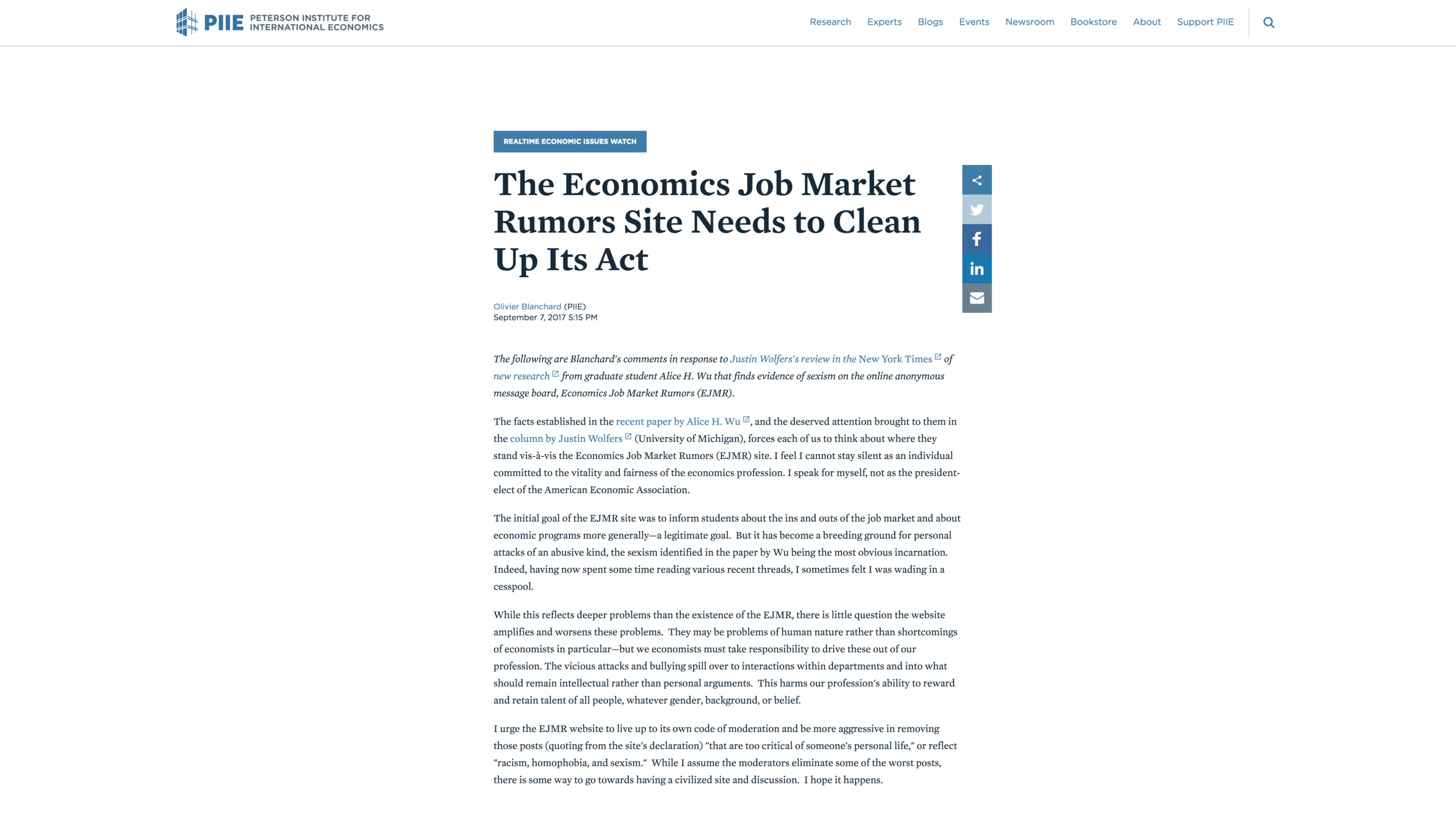Signalling When Everyone Knows about Last-Place Aversion: An Application to Economics Job Market Rumors
The concept of last-place aversion has been applied primarily to attitudes toward redistribution. I would like to apply it to understanding behavior on the Economics Job Market Rumors website.
One way to try to avoid being perceived as low person on the totem pole is to try to lower people's perceptions of someone else. The typical method is to remind people of their prejudices against various groups such as women, gays, minorities—or to point out what ought to be professionally unimportant personal idiosyncrasies of a target.
Efforts to tear down others are likely to have the greatest payoff in relation to last-place aversion if they seem necessary in order to reduce the chances of being in last place within the relevant comparison group (say among economics graduate students). Therein lies a problem: tearing down others is a signal that one is near enough to being in last place in a relevant comparison group to be worried. This inhibits people from tearing others down in the open. But the anonymity of a website such as Economics Job Market Rumors takes away this concern.
Link to Olivier Blanchard's missive shown just above. Olivier Blanchard is the current President-Elect of the American Economic Association
Excerpting from the missive linked above, Olivier Blanchard, the current President-Elect of the American Economic Association, has this to say about the Economics Job Market Rumors website:
The facts established in the recent paper by Alice H. Wu(link is external), and the deserved attention brought to them in the column by Justin Wolfers ... (University of Michigan), forces each of us to think about where they stand vis-à-vis the Economics Job Market Rumors (EJMR) site. ...
... it has become a breeding ground for personal attacks of an abusive kind, the sexism identified in the paper by Wu being the most obvious incarnation. Indeed, having now spent some time reading various recent threads, I sometimes felt I was wading in a cesspool.
Although the anonymity of Economics Job Market Rumors prevents us from connecting the negative signal sent by tearing others down with particular people IRL, we can still apply that negative signal to the class of individuals who tear others down by name on Economics Job Market Rumors—and especially those who tear others down by pointing to prejudicial information that has very little probative value for professional competence or character.
To put it bluntly, those who tear others down in unfair ways are highly likely to be losers. Even when the action of tearing others down is anonymous, don't put yourself in that category. Even if others don't know, sending a signal to yourself that you are a loser is not costless. Also, unfairly tearing someone else down worsens your own character and thereby makes it less pleasant to live with yourself.

